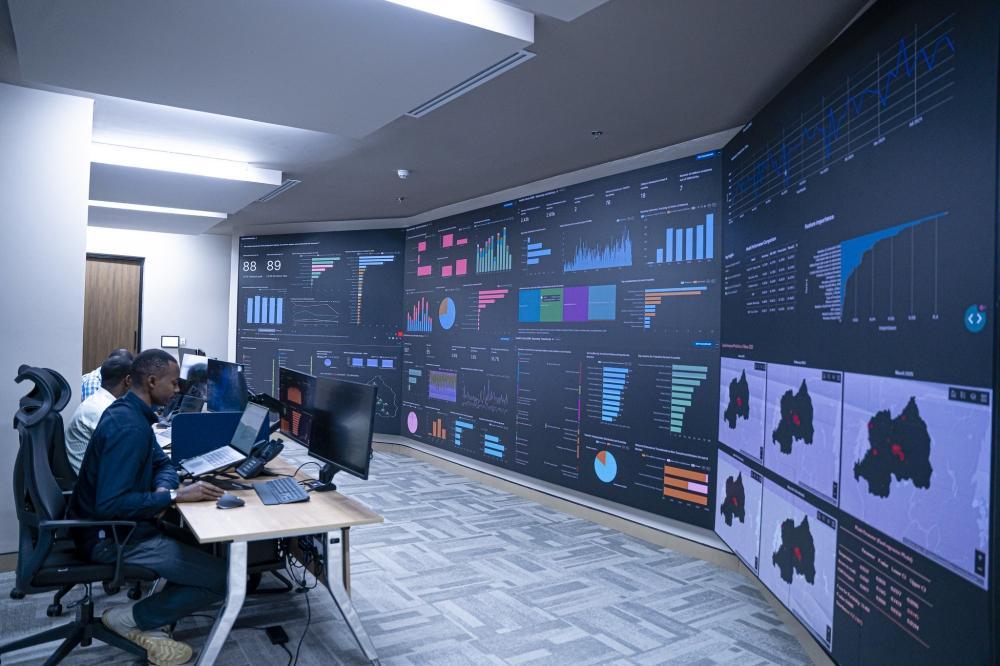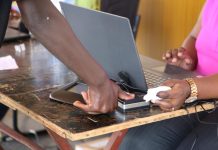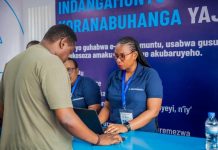Africa-Press – Rwanda. The Government of Rwanda is rolling out a Rwf280 billion ($200 million) Digital Acceleration Project, funded by the World Bank, aimed at significantly expanding broadband access, digitalising public services, and enhancing inclusion across key sectors such as health, education, and agriculture.
Running from 2022 to 2026, the ambitious initiative is already 55 per cent complete, according to Innocent Bagamba Muhizi, CEO of the Rwanda Information Society Authority (RISA), who briefed lawmakers on the project’s progress on July 7.
Expanding digital access and inclusion
According to the World Bank, one of the project’s core pillars is increasing access to digital services, especially in underserved areas and among marginalised populations. This includes targeted interventions to address key demand-side barriers such as lack of internet connectivity, unaffordable smart devices, and limited digital literacy.
The initiative supports smart device affordability schemes, nationwide digital literacy programmes, and connectivity access for unconnected government offices, schools, hospitals, and markets—ensuring more Rwandans can access high-speed internet and digital services.
Affordable smart devices for all
To bridge the digital divide, the project includes financing to help low-income households, students, and teachers acquire smart devices. This effort is led by RISA in collaboration with the Development Bank of Rwanda (BRD), which will act as a financial intermediary, offering commercial financing tools and managing a dedicated device fund.
The plan includes a phased roll-out—starting with pilot schemes and scaling up based on insights from Rwanda and other countries. A market assessment and feasibility study will guide the programme’s design, including how to ensure its sustainability beyond the project period.
Subsidies for the poorest households will be determined using the Ubudehe classification system and existing government social assistance databases.
Nation-wide digital literacy campaign
To close the digital skills gap, the project will expand Rwanda’s flagship Digital Ambassadors Programme (DAP) to cover all 2,148 cells across the country. This initiative aims to train citizens to use digital devices and services safely and effectively.
The World Bank identified low ownership of smart devices and limited digital literacy as major obstacles to digital inclusion—challenges the project directly addresses.
High-speed internet for public institutions
With a budget of $33.5 million, this subcomponent will deliver high-speed broadband to government offices, schools, hospitals, and public service access points that currently lack internet.
It also includes plans to build a more resilient and secure national government network (GovNet), linking public institutions at central, district, sector, and cell levels.
Key commercial areas will also benefit from public Wi-Fi to promote usage of digital services. To encourage private investment, the government will aggregate demand and pre-purchase internet capacity in select zones.
Digitising public services
To improve the government’s ability to offer secure, efficient, and resilient e-services, the project is developing shared digital platforms and frameworks focused on interoperability, data-driven systems, and paperless, cashless service delivery.
Investments will enhance digital ID systems, trust services, and big data capabilities—enabling better policy-making and planning.
Strengthening digital identity and authentication
A $39.3 million allocation will go towards upgrading Rwanda’s national ID and civil registration systems. This includes new digital authentication and e-signature tools to support secure, remote access to e-services.
The initiative will build on Rwanda’s existing Public Key Infrastructure (PKI) and strengthen the National Identification Agency (NIDA), supporting the rollout of digital IDs in a ‘soft’ format suitable for use across public and private platforms.
These investments are expected to catalyse private-sector innovation by improving identity verification tools critical for digital business operations.
E-Services in Health, Agriculture, and Governance
With $32.3 million earmarked, this component will expand high-quality e-services in key sectors, including health, social protection, agriculture, local governance, trade, and industry.
For instance, the E-Ubuzima platform is helping digitise healthcare services and reduce waiting times at hospitals. The Building Permit Management Information System has also been upgraded under the project to streamline urban development approvals.
Cyber-security and Data Protection
To mitigate risks associated with the rapid digitalisation of services, $19.5 million has been allocated to boost cybersecurity resilience and data protection.
The project will support the development of a strong governance framework, operational and technical capacity, and skills training for cybersecurity professionals. It will also finance the establishment of a Data Protection Office (DPO) to oversee compliance with data protection laws.
Support will be extended to institutions such as the National Cyber Security Authority (NCSA) and the Rwanda Computer Security Incident Response Team, which are responsible for managing and responding to cybersecurity threats.
For More News And Analysis About Rwanda Follow Africa-Press






